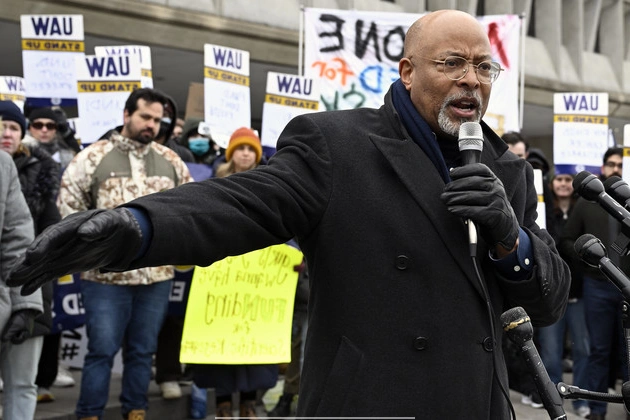
House Democrat Rep. Glenn Ivey has joined the chorus of voices calling for Senate Minority Leader Chuck Schumer to step down due to his handling of government cuts. Ivey, representing a Maryland district near Washington, expressed frustration at Schumer’s decision to allow a vote on a Republican spending plan, which many see as enabling further cuts by President Donald Trump.
Growing Division Among Democrats
Ivey’s criticism reflects a broader division within the Democratic party on how to oppose the significant cuts proposed by the Trump administration and Elon Musk’s Department of Government Efficiency. Recent events have seen Democrats and the public alike expressing outrage over Schumer’s actions, with many feeling that a more robust stance is needed to resist these cuts.
Call for New Leadership
While Ivey acknowledged Schumer’s past contributions, he emphasized the need for new leadership within Senate Democrats to effectively counter the Republican agenda. He highlighted House Minority Leader Hakeem Jeffries as a unifying force within the House Democratic Caucus and called for similar cohesion in the Senate.
Despite voting against the spending plan in the House, Ivey’s concerns were not echoed in the Senate, where the unity displayed in the House did not hold. He underscored the importance of aligning Senate Democrats with their House counterparts to maximize impact and resistance against cuts.
Reactions and Fallout
Ivey’s remarks come amidst a wave of criticism aimed at Schumer, even from long-time supporters like former House Speaker Nancy Pelosi. While Pelosi indicated continued support for Schumer, she questioned his decision-making regarding the spending plan vote.
Schumer’s response to the backlash has been pragmatic, stating that avoiding a government shutdown was paramount, despite the flaws in the Republican bill. He acknowledged the criticism but defended his actions as necessary to prevent significant harm to the country.
Looking Ahead
As tensions within the Democratic party rise over the handling of government cuts, the call for new leadership in the Senate intensifies. Ivey’s critique adds to the mounting pressure on Schumer to reassess his approach and align more closely with the party’s base.
With the 2026 midterm elections looming, the question of leadership and strategy becomes increasingly critical for Democrats seeking to counter the current administration’s policies effectively.











